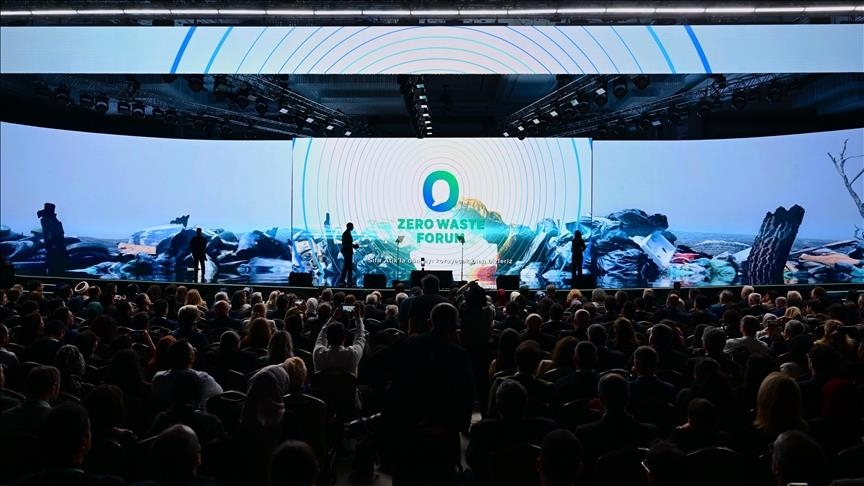Zero Waste Forum moment where critical mass being built to be followed as humanity: UN official
'It's a moment where we are discussing the problem, the challenge, where we are building critical mass in terms of the pathways that we have to follow as humanity,' Anaclaudia Rossbach tells Anadolu

By
ISTANBUL (AA) - Anaclaudia Rossbach, executive director of the UN-Habitat, who attended the International Zero Waste Forum in Istanbul, said the forum is a moment "where we are building critical mass in terms of the pathways that we have to follow as humanity."
"So, it's a moment where we are discussing the problem, the challenge, where we are building critical mass in terms of the pathways that we have to follow as humanity, as a planet, and helping us also to exchange the practices and to build the partnerships and coalitions that are needed, because there's no single institution that will be able to deal with the issue alone," said Rossbach.
Organized by the Zero Waste Foundation in collaboration with the Turkish Environment, Urbanization and Climate Change Ministry, the Turkish Agriculture and Forestry Ministry, the UN Environment Programme (UNEP) and the UN-Habitat, the International Zero Waste Forum brought together UN officials, scientists, decision-makers and zero-waste entrepreneurs.
The three-day forum, which kicked off Friday, addressed the zero-waste target across many areas and sectors, while focusing on sustainable city management.
Rossbach said the waste burden generated by cities has various dimensions, the first being the weight of waste in methane emissions and its effect on the climate, and the second is its effect on urbanization dynamics.
Noting that about 50% of the world's population lives in cities, and its proportion is expected to rise to 70% by 2050, Rossbach said it "means that urbanization is ongoing and the municipal waste, the waste generated in cities, is estimated to have an increase as well."
"It's very important that cities have plans, have strategies to deal with waste, on prevention and on management. Right.
"And it's very important that when designing these strategies, they are designed in a participatory manner so we understand the different contexts, the different realities of communities.
"And most important, that we involve the informal workers that we inform and we embed the informal settlements in these planning processes, because these are the most vulnerable," she added.
Stating that she finds green diplomacy efforts particularly important because they bring all stakeholders together, Rossbach underscored that rapid action can be taken through joint action by all stakeholders, emphasizing that it will increase strong collaborations and opportunities.
Stressing that the forum takes place just before the UN Climate Change Summit, COP30 in Brazil in November, Rossbach added: "So it helps us also to connect the dots, right, from COP to COP and to make sure that stakeholders go to this UN negotiation, global stages, well equipped with data, with information, and with the arguments that we need and the practices that we need on our way forward."








